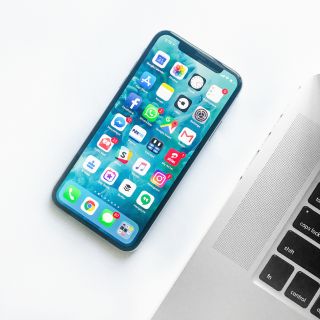Relationships
3 Ways to Change Your Relationship with Your Smartphone
What would happen if you took your life back from your many distractions?
Posted April 3, 2023 Reviewed by Devon Frye
Key points
- Today, many people struggle to develop meaningful in-person relationships and often feel a compulsive need to check their phone.
- The online environment tends to promote cursory reading, hurried and distracted thinking, and superficial learning.
- Since the advent of the internet, the ability to retain information has taken a back seat to the ability to locate it.
- You can implement three strategies to be in charge of your phone rather than allowing it to be in charge of you.

My dental hygienist’s dexterous fingers were canvassing around inside my mouth. Diana went on a tirade about the countless hours of her life she had wasted playing Candy Crush Saga and checking Facebook on her phone.
At least four times she punctuated her story with the same statement: “If I had used that time to do something tied to a larger purpose, I could have accomplished something great. I’ll never have that time again.”
Time Never Returned
Carolyn, a twenty-three-year-old events coordinator in Cape Town, South Africa, also shared her regrets with me about spending so much of her life online:
"When I was in high school, I was more worried about how many friends I had on my Instagram account than actual in-person friends. I felt the more likes a picture received meant the more popular I was. Looking back at it now, I regret it because it was not until university when I finally started making in-person connections rather than online. Focusing my time on social media made me waste time and energy. Now, I like advising my younger sisters to not make the same mistake as me and have more human interactions and connection."
I think almost anyone—myself included—can relate to Diana and Carolyn. Many of us intend to take a short break by playing Candy Crush Saga or checking social media or doing something else online. We unwittingly make this choice without realizing we’ve stepped into the fox’s den.
The Programmers Await
Inside our phones, tablets, and laptops reside today’s foxes: thousands of programmers whose job objective is to keep you there for as long as humanly possible, engaged in activities most of which hold very little importance to you in the long term.
Tristan Harris, CEO of the Center for Humane Technology, once remarked, “You could say that it’s my responsibility to exert self-control when it comes to digital usage, but that’s not acknowledging that there's a thousand people on the other side of the screen whose job is to break down whatever responsibility I can maintain.”

In many ways, the greatest challenge of our generation is to develop compassionate, meaningful, sustainable relationships (what I call “CMSRs”) in the face of these unprecedented technological distractions and wrest our attention back from the app developers whose performance reviews depend on keeping it.
To Locate Is Not to Retain
It’s not going to be easy. Nicholas Carr, author of The Shallows: What the Internet Is Doing to Our Brains, describes the digitally mediated cognitive shift affecting our minds:
"Dozens of studies point to the same conclusion: When we go online, we enter an environment that promotes cursory reading, hurried and distracted thinking, and superficial learning… What we’re experiencing is, in a metaphorical sense, a reversal of the early trajectory of civilization: We are evolving from cultivators of personal knowledge into hunters and gatherers in the electronic data forest."
Since the advent of the Internet, the ability to retain information has taken a back seat to the ability to locate it. Ask many teenagers today to name the capital of Belgium or the first president of India and they won’t be able to tell you now, but they will in ten seconds.
The upside is that two decades ago most teenagers wouldn’t have been able to identify the first president of India either now, in ten seconds, or ever. Perhaps a belated digital assist is better than nothing.
The downside is that our attempts at developing meaningful relationships are now punctuated by so many digital assists—Google information retrieval to accentuate the topic at hand, which often results in what's known as “phubbing” (phone snubbing the other person)—that we no longer connect.

Reclaim Your Life
Here are three strategies I share in my book Screened In: The Art of Living Free in the Digital Age that you can implement to be in charge of your phone rather than allowing it to continue another day as your master.
- Take notifications off your phone. Strip app developers of using sounds and popup messages to control you.
- Set your phone to grayscale. A University of Rochester study has found that men find women more sexy and attractive when their photo is offset with a red rather than a white, green, or gray background. Similarly, when a woman is wearing a red rather than a blue shirt, men are not only more sexually attracted to her, but indicate they would be more likely to ask her out and would spend more money on her on a date. These effects of color on your brain have very likely not escaped your friendly neighborhood app developers. I suggest relegating your phone to its proper role as a bland tool for coordinating your day rather than a colorful, iridescent alternative to the real world.
- Decide how often you will check your most problematic apps and then move them to your last screen. App programmers use proximity to manipulate how you spend your day. This is a wonderful strategy to help you reclaim your life from them.


